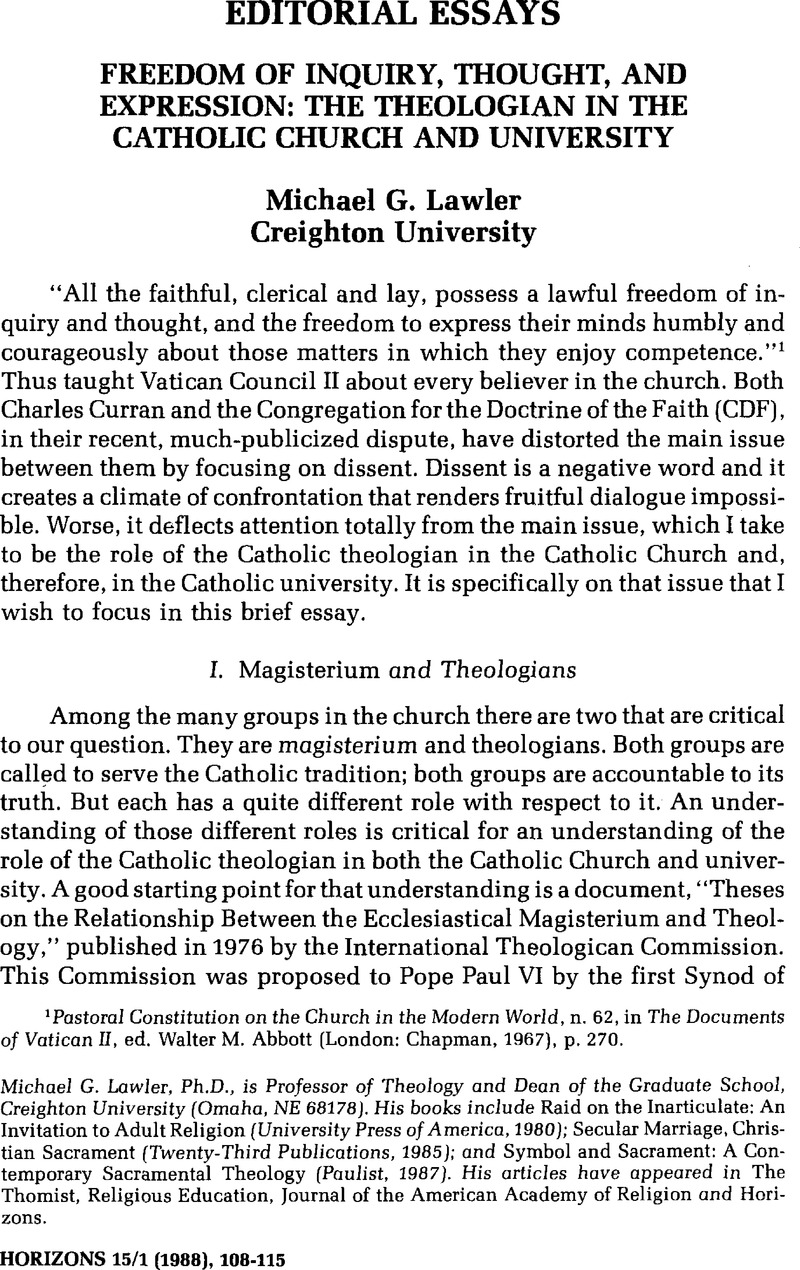No CrossRef data available.
Published online by Cambridge University Press: 09 September 2014

1 Pastoral Constitution on the Church in the Modern World, n. 62, in The Documents of Vatican II, ed. Abbott, Walter M. (London: Chapman, 1967), p. 270.Google Scholar
2 Quod.III, q.IV, a.1 ad 3; see IV Sent., d.19, q.II, a.II, qa.2 ad 4 for a different formulation.
3 See, e.g., Dulles, Avery, “The Two Magisteria: An Interim Reflection,” Proceedings of the Catholic Theological Society of America 35 (1980), 155–69.Google Scholar
4 Summa Theologiae, Ia-IIae, q.98, a.1c.
5 I prescind in this short essay from any consideration of either the theoretical underpinnings or the theological meaning of the concept of infallibility in the Catholic tradition.
6 Sacramentum Mundi (New York: Herder and Herder, 1969), 3:356.Google Scholar
7 See Rahner, Karl, “The Dispute Concerning the Church's Teaching Office,” Theological Investigations, 14 (New York: Seabury, 1976), 85–88.Google Scholar
8 Dogmatic Constitution on the Church, n. 62, in The Documents of Vatican II, ed. Abbott, , p. 48.Google Scholar
9 See Fogarty, Gerald P., “Dissent at Catholic University: The Case of Henry Poels,” America, October 11, 1986, pp. 180–84.Google Scholar
10 “Authority and Conscience: Two Needed Voices in the Church,” Church 2/3 (Fall 1986), 15.Google Scholar